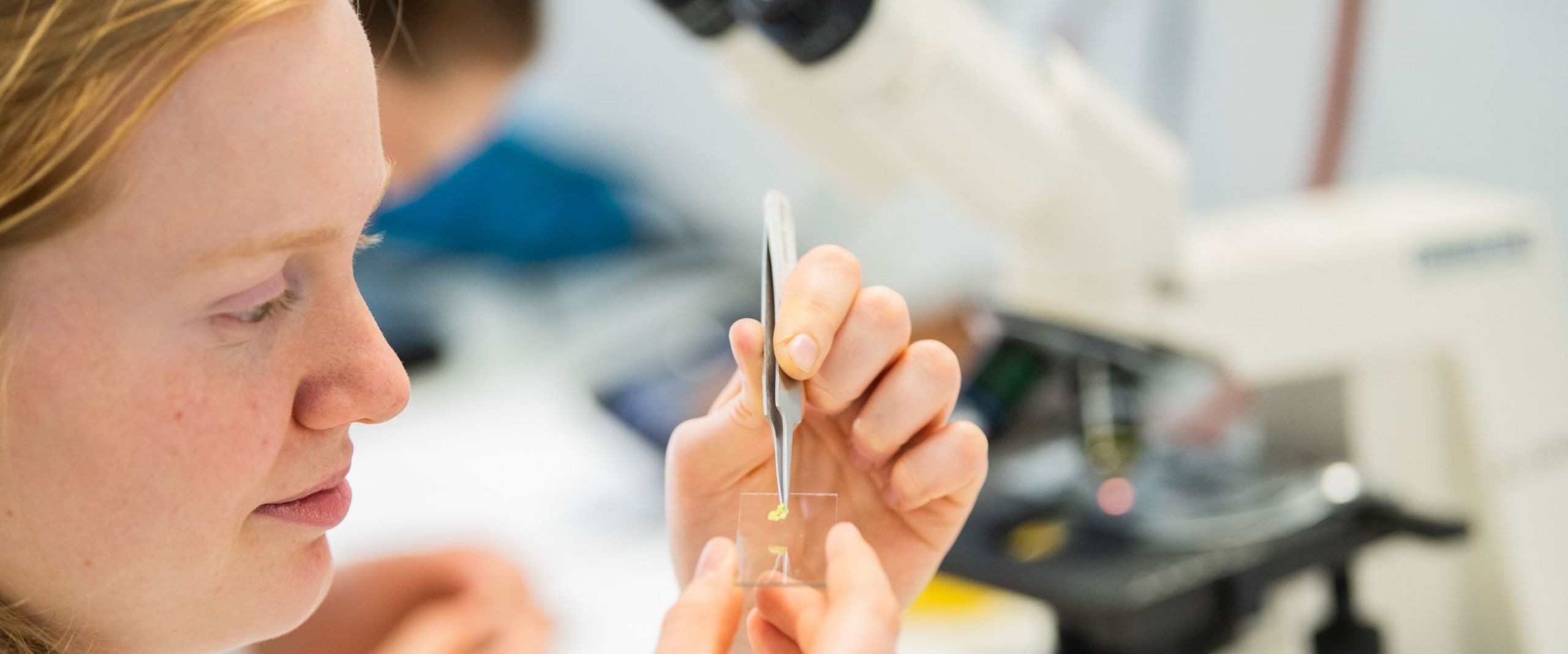
School of Nature and Engineering
| Degree | Bachelor of Science |
|---|---|
| Start of study | Winter semester |
| Application period Winter semester | 01 June until 15 July |
| Standard period of study | 7 semesters |
| Credits | 210 |
| Accredited | Yes: 30.09.2020 until 30.09.2027 |
| Admission restricted | Yes |
| Admission requirements | Higher education entrance qualification |
| Language of instruction | German |
| Faculty/institution | School of Nature and Engineering |
| Integrated stay abroad | Yes |
Learning from nature and helping to develop innovative technological solutions – that's what you study in the International Bionics degree programme. Shark skin as a model for the surface of ships’ hulls, dolphins as inspiration for a ski box, geckos as masters of glue-free adhesion or zebras as the basis for temperature regulation in buildings: there are countless examples where nature can serve as a model for technological progress. In the bionics degree programme, you will learn about many such applications and carry out your own practical projects.
The programme is aimed at people interested in natural sciences and technology, and both biological as well as engineering content is taught during the programme. You work in teams to carry out various practical projects, and excursions are also an integral part of the programme, for example to Hamburg, Sylt or Helgoland. You spend the fifth semester abroad.
Graduates of the International Bionics Programme have a wide range of career opportunities in all areas surrounding the research and development of new technologies and innovative products. For example, in the following industries:
You will acquire knowledge especially of the following sought-after professional fields:
The standard period of study is seven semesters and includes six semesters of theoretical studies, an integrated semester abroad (in the 5th semester) and the final examinations including the Bachelor's thesis.
While the foundation courses in general natural sciences, mathematics and biology as well as selected contents of engineering sciences are taught during the first semesters, the subsequent in-depth studies serve to build profile in the form of specialisations. These focus areas are ‘Materials’, ‘Construction’ and ‘Locomotion’ (transport systems). The training takes place within the ongoing research projects using the most modern instruments and methods of biology and engineering sciences.
In addition to subject-specific content and methods, you will acquire interpersonal skills (international and interdisciplinary study teams) as well as cognitive skills (dealing with highly complex, multidimensional biological constructs). Moreover, training in the areas of business management, communication technology and foreign languages are also obligatory components of the degree programme.
You spend the fifth semester abroad. Some of the students use the time to study, the others work on scientific projects or undertake a work placement.
For almost 20 years, the B-I-C has been coordinating developments in basic and and applied research. Furthermore, the Institute supports and moderates the transfer of technology from science to industry, not least within the framework of national and international networking with the diverse stakeholders in the field. Especially in the context of lifelong learning, the centre has also significantly expanded its activities in the area of further education.
Check the application deadlines and admission requirements for your desired degree programme.
Questions about the degree programme can be answered by the contact persons on the degree programme pages. If you have any further questions about your decision to study at HSB, our advisory and service institutions will be happy to help.
